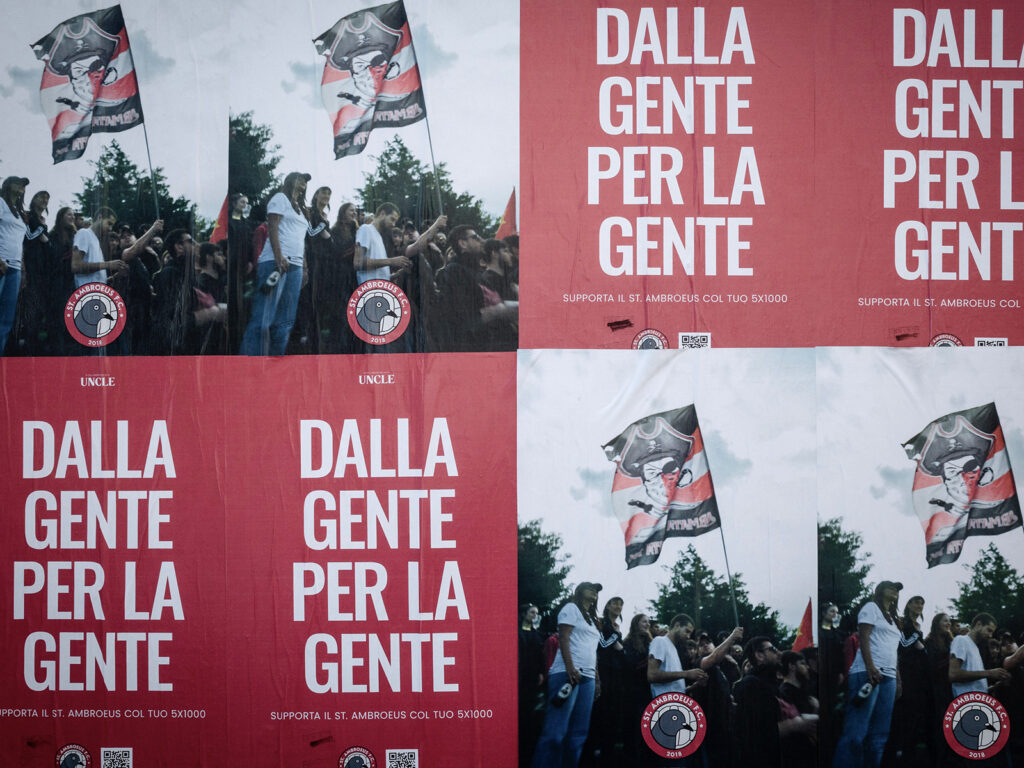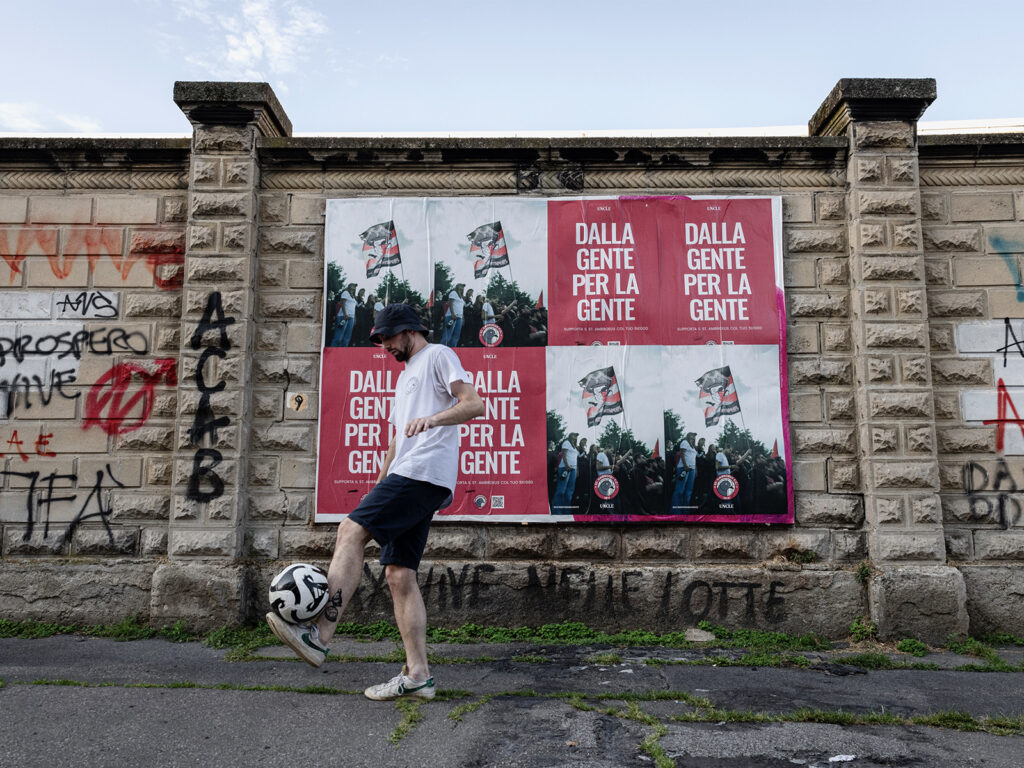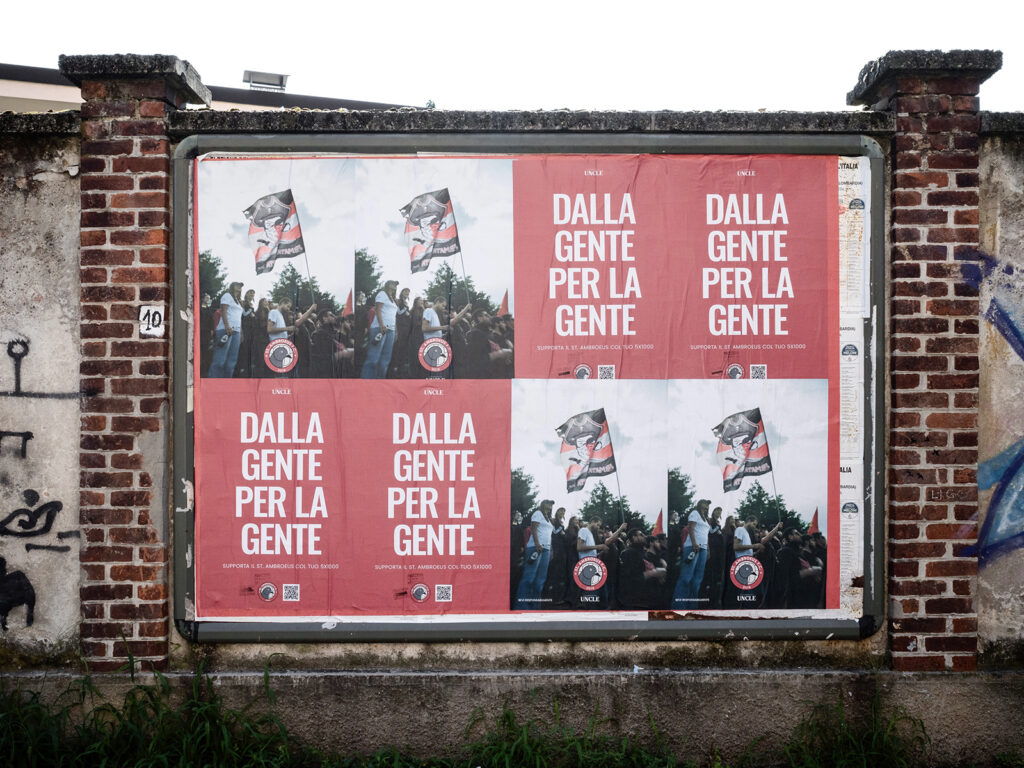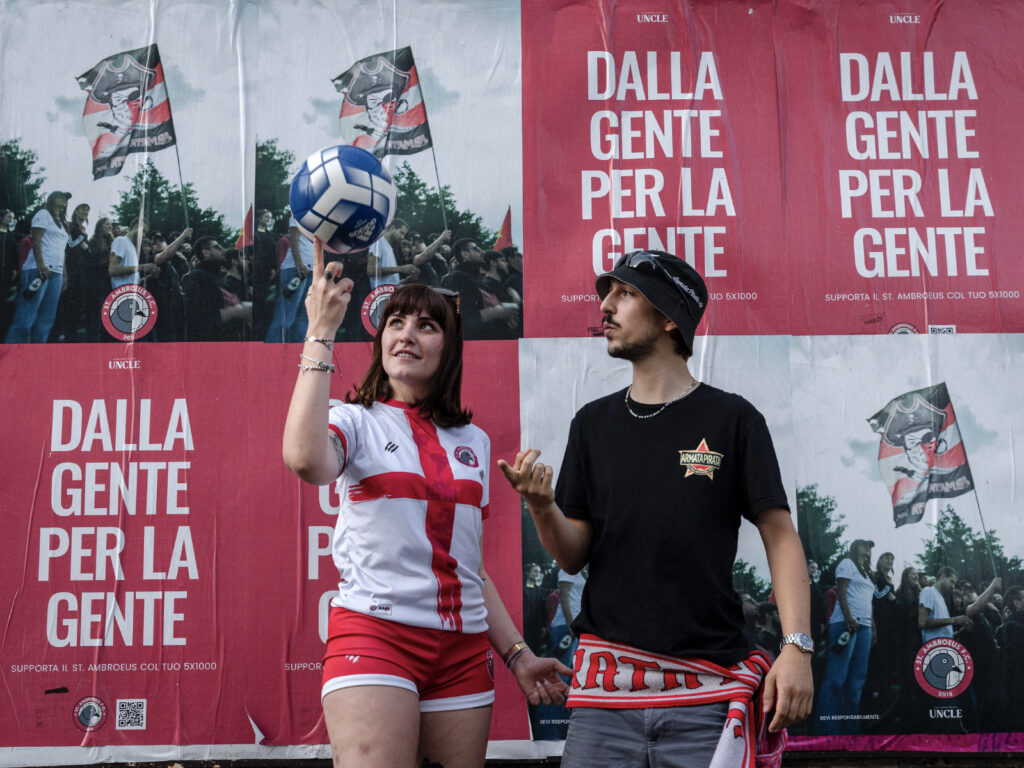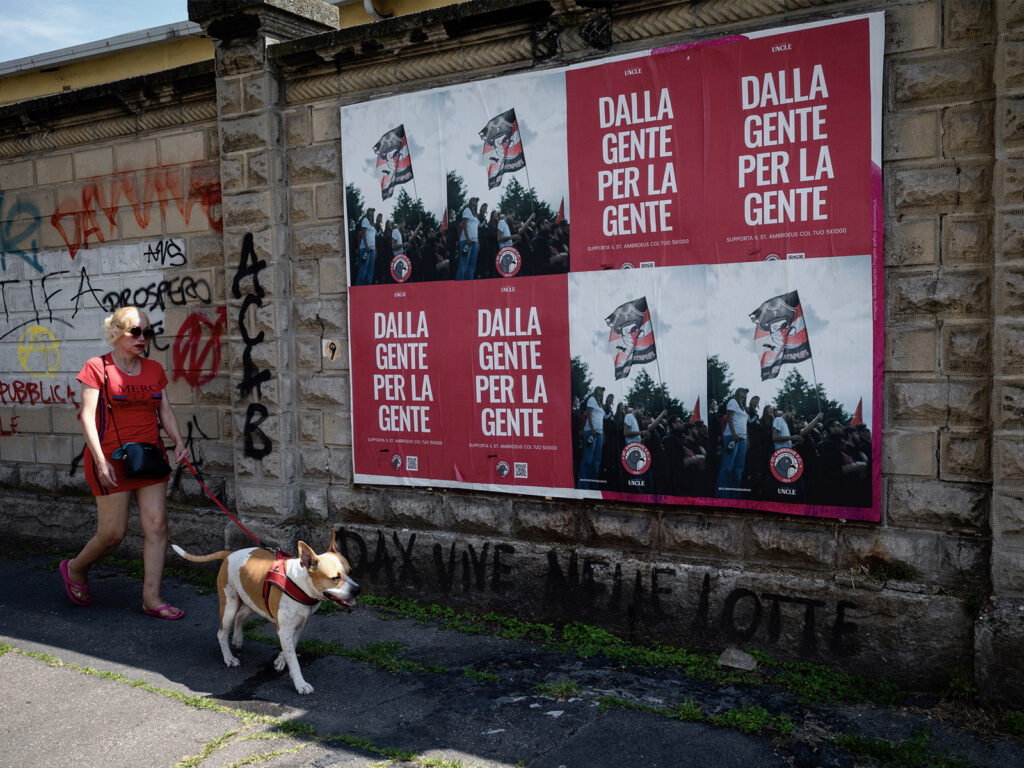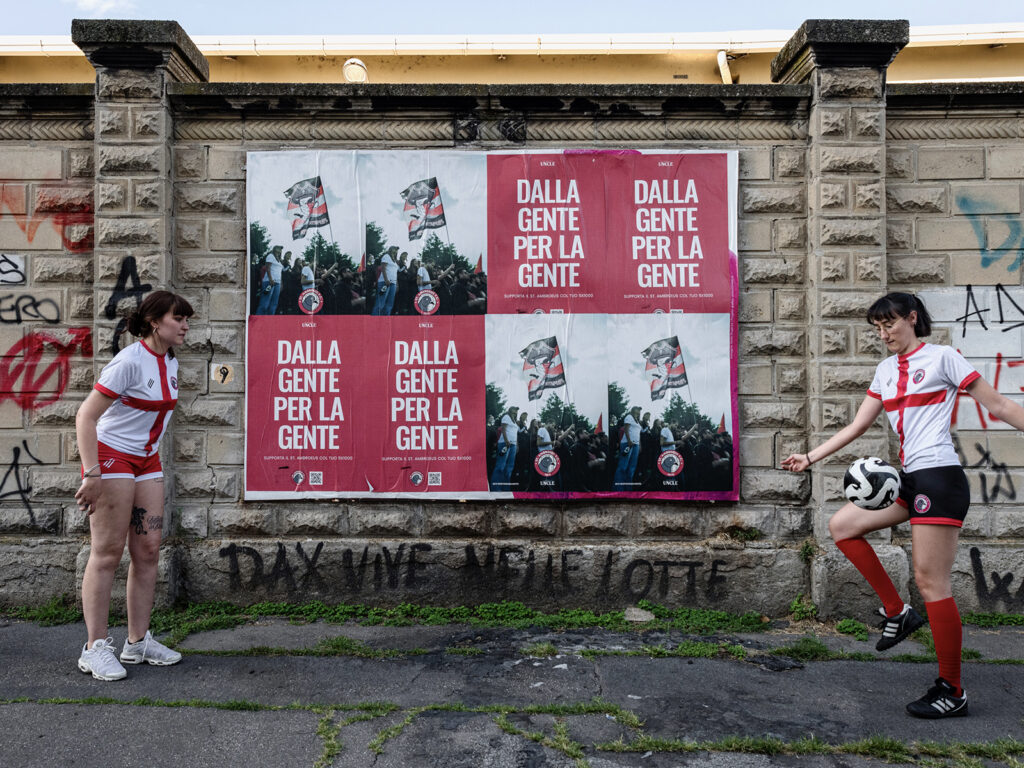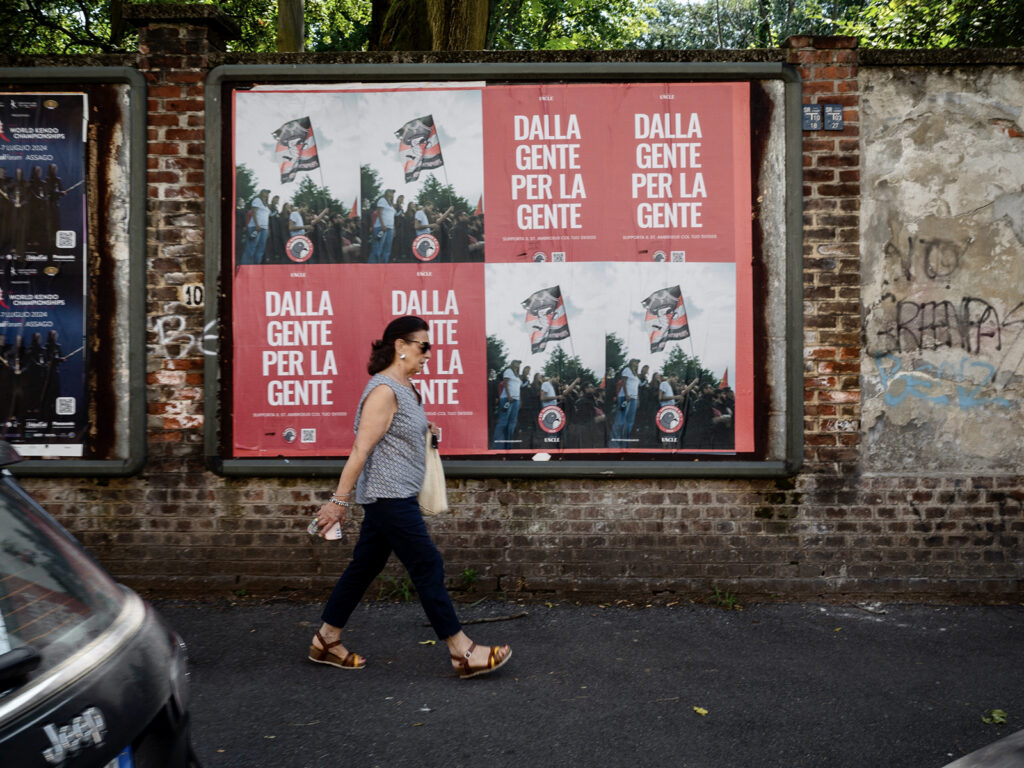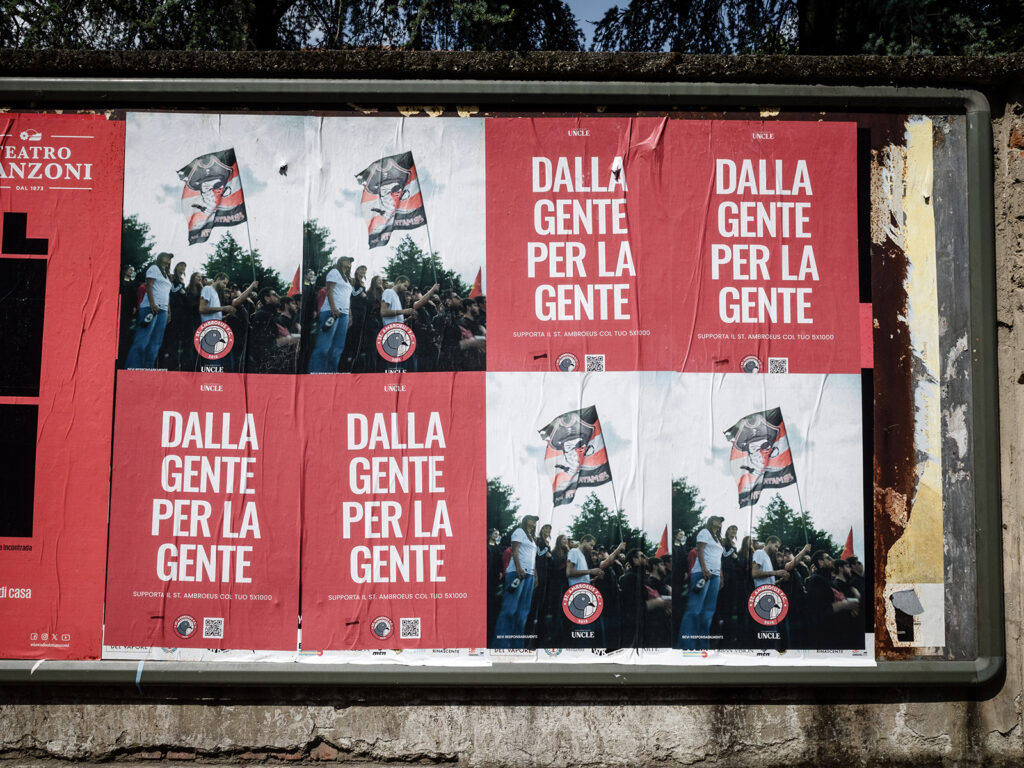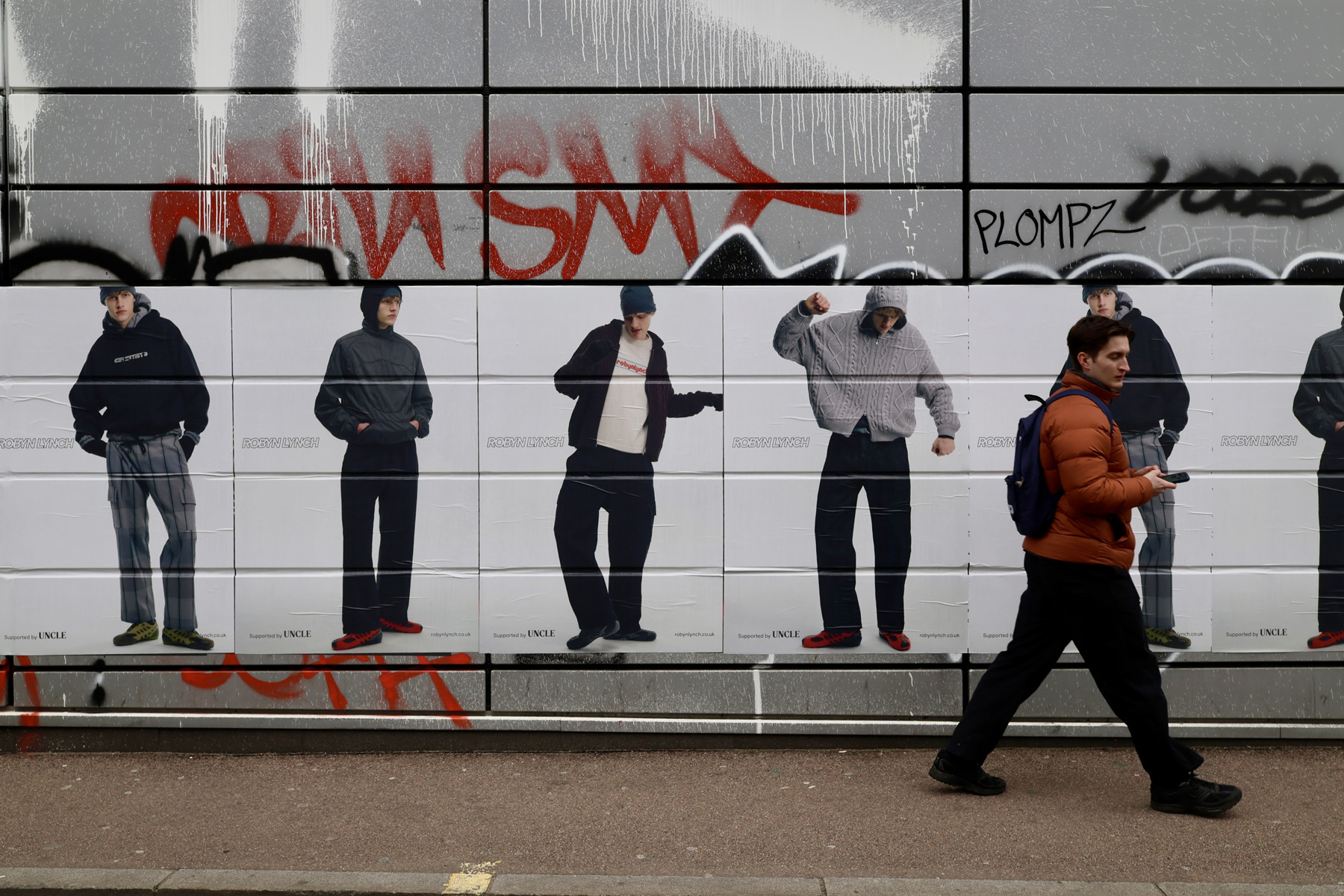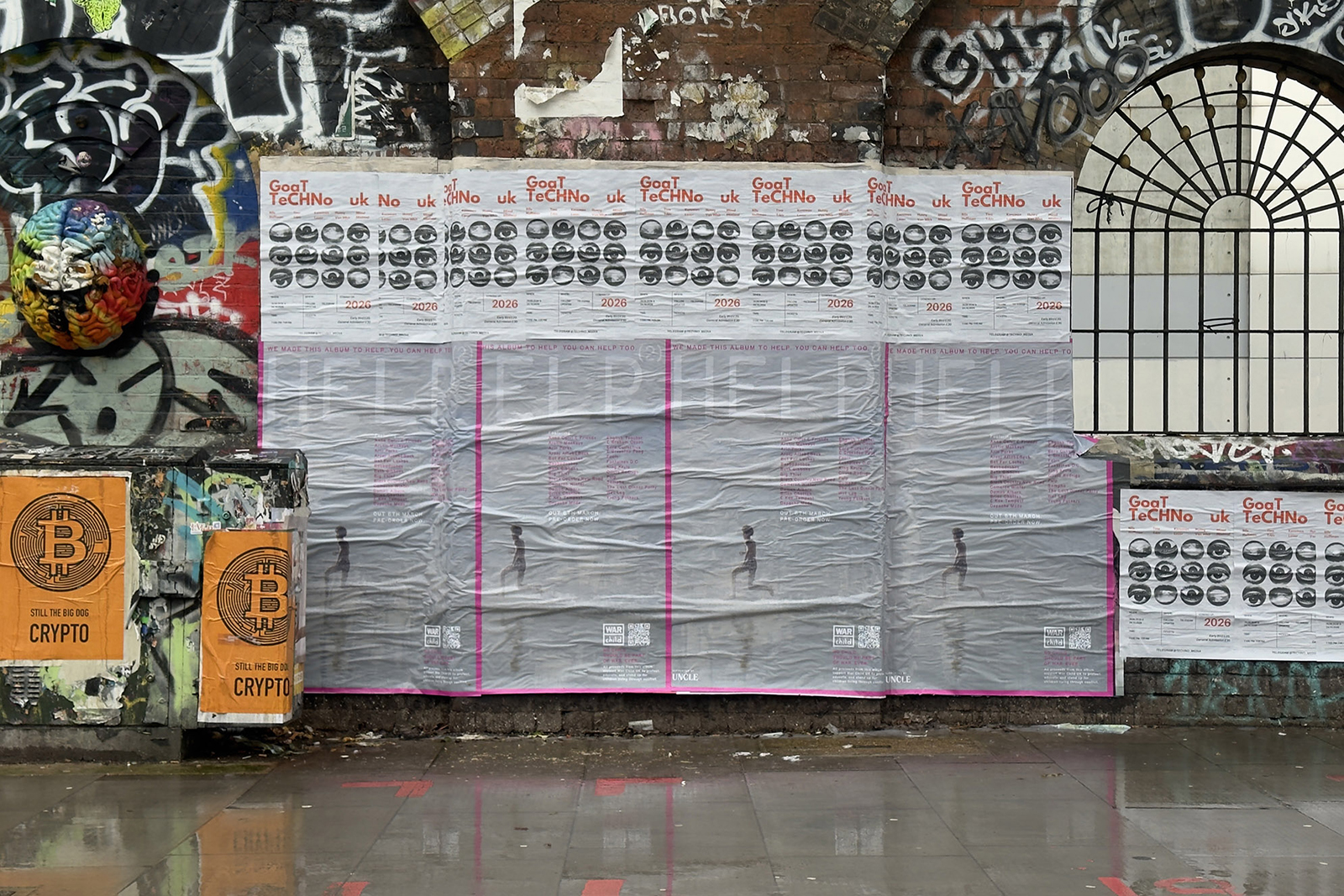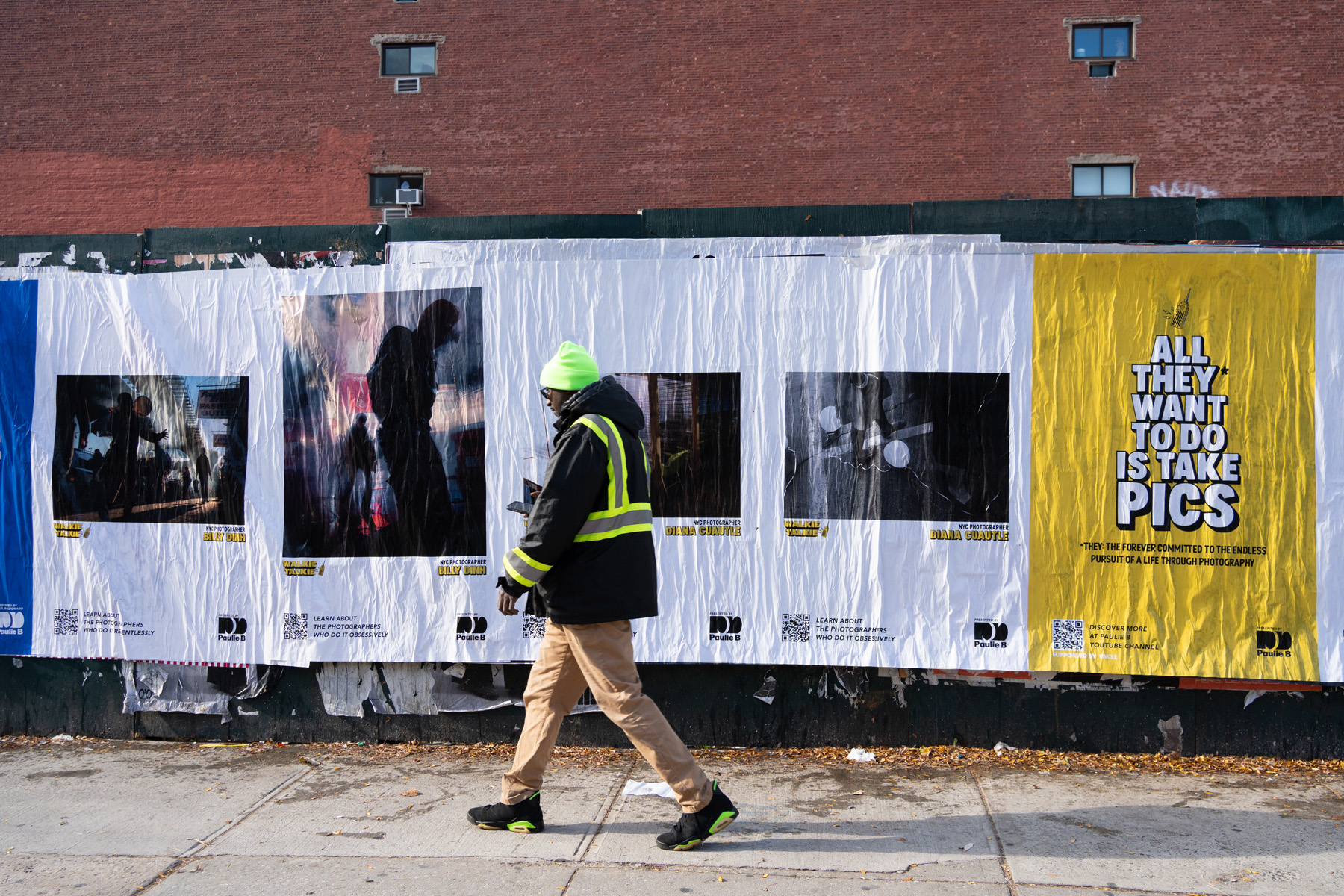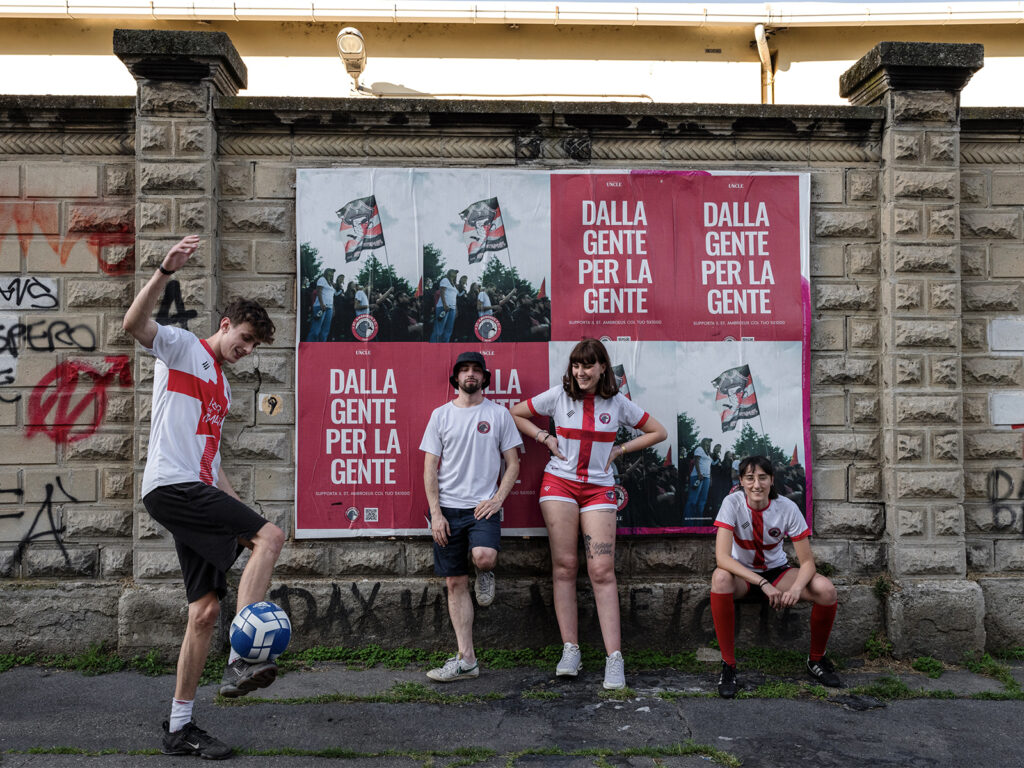
Football, with its endless array of clichés and well-worn phrases, often seems to speak in circles. Circles spun into a corridor of uncertainty until they are kicked into row Z. It’s played so often in front of parked buses and inside theatres of dreams, that sometimes we forget that this beautiful game – this game of two halves – is ‘more than just a game.’
But away from the top table of international football, in the shadows of grounds like San Siro, and on pitches where volunteers mark the lines, is where you will find that last idiom to still ring true.
Enter St Ambroeus FC, a beacon of unity, diversity, and community spirit in the heart of Milan. Established in 2018 through the merger of two football teams and two welcome centres for refugees and asylum seekers, The Black Panthers and The Corelli Boys, St Ambroeus FC transcends the boundaries of sport to become something truly remarkable—a symbol of hope in a world too often divided by fear and prejudice, using a sport that is too often removed from its grassroots by governance and wealth.
“In football, everyone is on the same level, wearing the same shirt and fighting for the same goal,” says Phillip, a player and board member whose journey with St Ambroeus FC mirrors the club’s recent progress. What began as a simple desire to find a new club to play football for has blossomed into a commitment to a cause greater than himself—a cause that celebrates the human experience, regardless of race, religion, or background. In doing so, the club not only celebrates goals and last-ditch tackles. It celebrates what it means to be Milanese.
St Ambroeus FC takes its name from Sant’Ambrogio (Saint Ambrose). Born in Trier around 340 AD, Ambrose rose to prominence as the bishop of Milan in the late 4th century, playing a crucial role in mediating political disputes and defending the oppressed, earning a reputation as the “Father of the Church” in Milan. Some 1600 years on, Ambrose was seen as a patron saint fitting of this football club.
The club has multiple teams across various levels of the Italian league system and has players from sub-Saharan Africa, Latin America, Asia, Eastern Europe and more. They all come together on the pitches of Milan and surrounding areas where they take on other amateur sides. But St Ambroeus FC’s impact extends far beyond the pitch. Through a myriad of social initiatives, the club seeks to uplift and empower the marginalised, from providing warm clothing and food to the homeless during the winter months to supporting refugees fleeing conflict.
Also off the pitch – more specifically huddled on the touchline – are the club’s organised, ‘Ultras’ supporters group, The Pirates. Italian football culture is known for its super passionate supporters, many of which are politically active. But at the level St Ambroeus operate at, they outnumber their opposition supporters by a hundred to one – sometimes literally. As Philip told us, theirs is the only club of its kind that has supporters and the connection between players, fans, president, vice president and secretary, is seamless like a free flowing move with a third man run. This is why, as part of UNCLE’s collaboration with the club, they decided that The Piratesand the players would be front and centre of the campaign that is now plastered across Milan.
As Italy’s most diverse city, Milan provides fertile ground for St Ambroeus FC’s mission, creating a mix of cultures and experiences that enrich the fabric of the club and its hometown. Their story serves as a testament to the enduring power of community, proving that in football, as in life, clichés often conceal a deeper truth — a truth that transcends the boundaries of language and culture to unite people in a common goal.
INTRODUCE YOURSELF IN YOUR OWN WORDS…
My name is Phillip, I’m from Milan. I’m 27, Jewish from my father’s side of the family who was the first person in my family to move to Milan. I had played football all my life, up until I was 25 when I was about to give up, but a friend of mine suggested that I join St Ambroeus FC.
I came to a session with two of my friends who I had played football with previously and we decided to join. After about six months at the club – and after getting an injury which meant I couldn’t play – I joined the board of directors as one of the volunteers who help to run the organisation and to help the machine work – because the more people that are involved, the better it works. Very quickly, it became a part of my life.
CAN YOU TELL US A LITTLE BIT MORE ABOUT ST AMBROEUS FC AND WHAT IT MAKES IT DIFFERENT FROM YOUR AVERAGE LOWER-LEAGUE FOOTBALL CLUB?
The club is the fruit of the labour of two organisations that date back to before St Ambroeus FC was born in 2018. There were two welcome centres for refugees and asylum seekers in Milan that had lots of people who wanted to play football. They each had a team, The Black Panthers and The Corelli Boys, and these teams were merged under St Ambroeus with the aim of showing that, no matter what your background or how long you have been in Milan, you are Milanese, together as one club. St Ambroeus helps many people to feel part of something and to belong to a city.
Having these roots in anti-fascism, anti-racism and anti-sexism, has defined the club and the decisions it makes and also makes things feel very natural. Even in those early days, asylum seekers needed somewhere to play football, so it was provided for them. And everything has this organic feel.
This is the reason why we have many supporters and I think that we are the only club in our league that has groups of fans at matches – even though we are in the lowest division of Italian football.
THE CLUB NOW HAS MULTIPLE TEAMS, OPERATING IN THE ITALIAN LEAGUE SYSTEM, AT YOUTH LEVEL AND AT LEVELS IN BETWEEN. WHEREABOUTS IN THE WORLD ARE YOUR PLAYERS COMING FROM?
At the beginning, everyone in the team was from sub-Saharan countries. Then we opened it up to all countries and created another two teams; one women’s team and one more amateur team for men. So now we have players at the club from all over the world. There are many African players, some from Latin America, Asia – a couple of lads from Leeds.
Our first team was divided into one-third Italian and European players and two-thirds from the rest of the world, and we won the championship in our first season with this structure and got promoted.
However, the league rules for our first team make it complicated because you must have a certain amount of Italian nationals and a certain amount of young players registered for each game or you have to forfeit the result. So we had to take more Italian players for this team and change it to roughly two-thirds Italian players. But in other leagues – our second team and our women’s teams – fortunately these rules do not apply, so we can play whoever we want.
Of our 30-player first-team squad, we have 15 nationalities and many more than that when you take into consideration our other teams and our youth team, which is made of young people that are also new to Milan.
WHAT IS IT ABOUT FOOTBALL THAT ALLOWS IT TO BE THE VEHICLE FOR CHANGE IN A PROJECT LIKE THIS?
When on the football pitch, all the issues that matter outside of the pitch, don’t matter anymore. On the pitch, everyone is on the same level, wearing the same shirt and fighting for the same goal. It’s also the most followed sport because it’s the one that is about the team, rather than the individual.
The feeling and emotion that football gives you, is down to the fact that you are part of a team. You share your energy and your dream with other people. It gives you something more in your soul than other sports.
OUTSIDE OF THE SPORT, THE CLUB IS VERY ACTIVE IN A NUMBER OF OTHER PROJECTS. COULD YOU TELL US ABOUT SOME OF THE WORK YOU DO AWAY FROM THE PITCH?
We have many projects, some of which we do every year such as supporting homeless people with warm clothes and food during the winter. This is something that we do every Christmas time, for example. Then there are other ongoing projects. We work with a restaurant in the city that hires people from underprivileged backgrounds and with them, we collaborated to bring food to the border of Ukraine not long after war broke out. We hired a bus and delivered supplies, as well as bringing around 50 people with us back to Italy as refugees.
Since last September, we have been providing a service which helps the employability of people arriving in Italy, such as helping them to get a driving licence and or learning the language. And our ultras supporters’ group, The Pirates, have recently done some work helping victims of an earthquake in Morocco, using football to help rebuild communities over there – they have visited three times already and are hosting a photography exhibition event soon to showcase this work and raise awareness of this cause.
YOU MENTIONED ALREADY THAT A CLUB OF THIS STATURE HAVING A CROWD FOR IT’S GAMES IS UNHEARD OF, SO WHAT IS IT LIKE PLAYING IN FRONT OF THESE DEDICATED SUPPORTERS OF ST AMBROEUS?
It’s incredible. Some other teams have one or two supporters of course, but nothing like this. It is what feeds my energy when I play, it gives me strength in my muscles and gives me the rhythm of the match, even when our playmaker doesn’t.
I now know them personally, they are my friends or more so, they are like a family. To play for them really is an honour and it’s an honour to represent them whilst they are singing for ninety minutes. This is why people play football. The project goes beyond the game and it’s what keeps me playing.
ARE MANY OF THE SUPPORTERS WHO GATHER AT ST AMBROEUS SEEKING SOMETHING THAT THE SPORT AT THE HIGHER LEVELS – SUCH AS AC MILAN AND INTERNAZIONALE MATCHES AT SAN SIRO – IS LACKING?
We wanted to be a bit tricky and go against modern football’s money-orientated ways. So the club has been a punch against racism and against modern football, too.
Many of us support either Milan or Inter but come together for St Ambroeus, but amongst the supporters, there are many who outside of the club, do not have much interest in football at all. This is something we are proud of. Of the core supporters group which is about 40 people, many of them are women and girls also, which we think is important as it helps to make this sport accessible to more people which is not always the case at higher levels.
WHAT INFLUENCE ON THE CLUB DO THE SUPPORTERS HAVE?
To help with the running of the club and its growth to do more projects, there has been a restructure where we have had votes for a president and vice-president and other roles. I think that now we must be the only club in the world where the vice president is also head of the ultras. This guy thinks about St Ambreous before going to bed. He doesn’t stop.
We want the structure to be as horizontal as possible and also to help share the burden of the work. The more you can spread the responsibility and still keep it efficient, the better that we and the club will live.
WHY DOES MILAN WORK SO WELL FOR A PROJECT LIKE THIS?
Man… Milano is the most ethnically diverse city in the country. Real Milanese that speak the Milanese dialect, are almost going extinct. Everywhere you go you breathe globalisation, so it is probably easier to run this here than in other areas of Italy. There are also a lot of resources and services here that help us out and that we can collaborate with.
WHAT IS YOUR FAVOURITE THING ABOUT MILAN?
Anyone you ask this question to will say the same thing. You love it, but you hate it.
As I said before, Milan is one of the easier cities for people to integrate into, but it is still not easy. Like all of Italy, Milan has issues with inclusion, in my opinion. I’m not a sociologist so I would hate to try and explain why and get it wrong, but projects like ours help the city towards having this good reputation.
HOW CAN PEOPLE SUPPORT WHAT THE FOOTBALL CLUB DOING?
People can become socios – members of the club who have a say in how it is run and play an active role in supporting the club. Our socios include players, board members and fans, all of whom can attend our meetings. This membership costs 50 euros and helps us with the running costs of all our projects.
We also have merchandise that we ship all over the world and people make donations via our website. In Italy, we have a system where people donate 5% of their annual salary or revenue to a cause – this is typically used to donate to the church, but people can now choose the football club as who they would like to donate to.
AND FINALLY, HOW HAS THIS SEASON BEEN GOING?
So last season we were relegated back down to the ninth tier of Italian football, but this season we have been playing well once again. At the time I’m speaking to you, we still have a chance of promotion. And I also have returned to fitness personally and recently scored my first-ever goal for the team, whilst also wearing the captain’s armband for the first time. We won 5-0 in that game, but in truth, it should have been 10-0.
UPDATE:
St Ambroeus FC finished the 2023/24 season with a promotion, doing so with a team of 30 players representing 15 different nationalities… all of which are Milanese.

